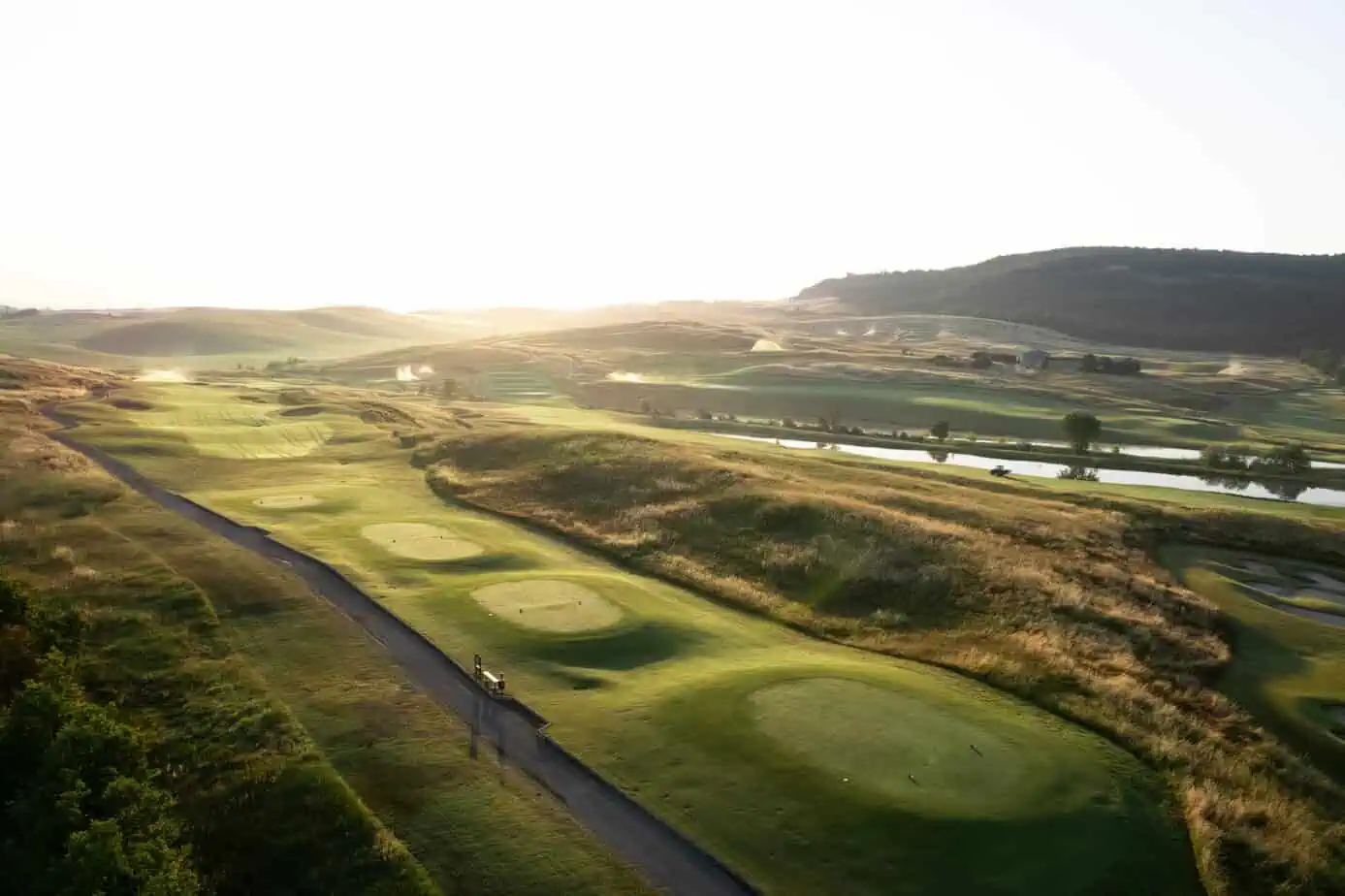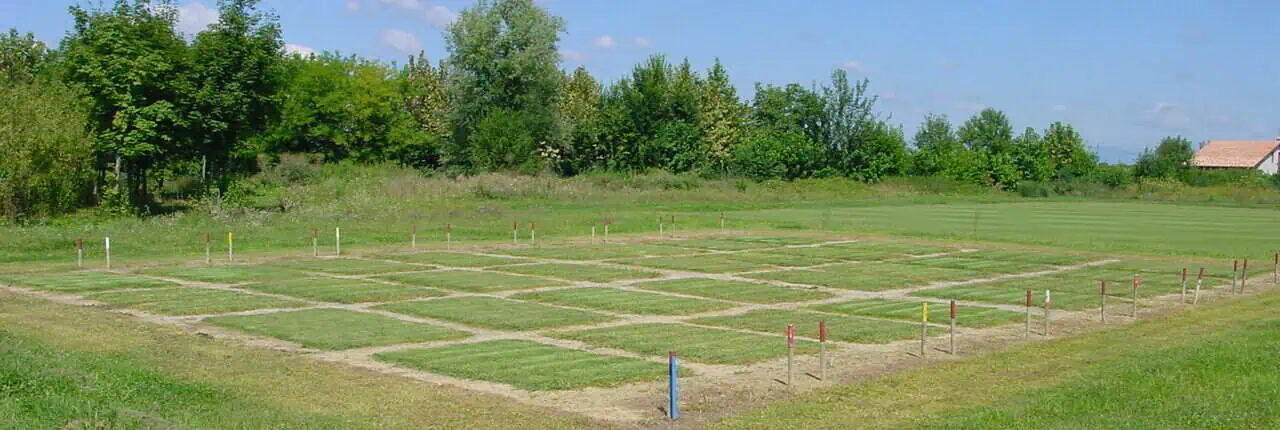Anyone talking about the challenges of climate change for golf is looking down – at the grass. Grass is the essence of this sport. Healthy grass is the foundation of a high-quality playing surface that keeps the customers coming.
Climate change is accompanied by increasingly extreme weather in many parts of Europe: sometimes there are long periods of drought, sometimes extremely heavy rainfall, then floods. Grass doesn’t particularly like any of this. Then there are warmer winters and more humid air. All of this combined is not good for golf: no matter where you look, the challenge of guaranteeing a consistently good playing surface is becoming greater because the consequences of climate change are also promoting the emergence of diseases on golf courses. In any case, the fungus dollar spot has kept the golf industry on tenterhooks in many countries over the past year.
In parallel with climate change, the authorities are tightening regulations: Water abstraction quantities are being reduced and the use of pesticides is being more strictly regulated. The grass, already on the defensive, needs different practices to those that Europe’s greenkeepers have been using for decades.
Subscribe to our newsletter!
News & trends about sustainability in golf
Focus on France and Italy
Two European countries are particularly in the spotlight when it comes to adapting to climate change and reorienting grass selection and maintenance: Italy and France, two strong golfing nations that have a lot in common. Top-class sport is very important here, and tourism plays an important role. This goes hand in hand with the need to deliver top-quality playing surfaces. Cool-season grasses have prevailed in both countries for decades. Here and there, water shortages are a problem. In France, the use of pesticides has been completely out of the question since the Labbé law was tightened in 2022. “This was a wake-up call for everyone,” summarises Rémy Dorbeau, President of the French Greenkeepers Association and one of the leading experts when it comes to the transformation process towards sustainable greenkeeping.
What he has in common with Alessandro de Luca, Head of the Green Section of the Italian Golf Federation, is a belief in scientific trials. At Golf de Chantilly, where he worked as General Manager until 2025, Dorbeau tested the suitability of countless test fields with a wide variety of grass mixtures. Alessandro de Luca, owner of Golf de Montecchia, carried out an initial series of tests with bermudagrass there in 2010 and then set up a longer series of tests together with the University of Pisa. Bermuda grass has been tested on the greens at Golf de Montecchia since 2016.
“Many other golf courses in northern Italy have now followed this example and this in turn has meant that the world of soccer is now also starting to use Bermudagrass,” concludes de Luca with satisfaction. The training centres of Juventus Turin, Verona and FC Bologna now work with bermudagrass.
According to de Luca, the advantages are obvious: 40 to 70 percent water savings, 30 to 80 percent less fertilizer use, no need for pesticides, better playing quality, and, on top of that, often better drainage.
In France, Dorbeau sees “Bermuda grass coming, especially on the fairways”, but points out that the future probably lies in individual grass mixtures for each individual golf club. “We have different soils in France, different climates, the challenge is different everywhere. So we are talking about very specific requirements for the grass.” His advice to golf clubs is that the answer can only be a specific one. “I advise every greenkeeper to create their own test fields.” In his opinion, advanced Fescue varieties, which are significantly less susceptible to disease and also use less water, are part of the solution, as are Bermuda grasses.
The future is exciting for Dorbeau. Being open to all sides also allows him to have a look at Zoysia grasses, which are not uncommon on golf courses in Asia and Australia and are also highly salt-tolerant. In view of the fact that recycled water is also becoming more and more of an issue for the golf industry on Central European golf courses, this is not an insignificant feature.
Anyone who talks to de Luca and Dorbeau will recognise that the topic of grass in golf has become a field for explorers. Climate change demands innovation from golf. Only those who are prepared to test new things will ultimately succeed.









